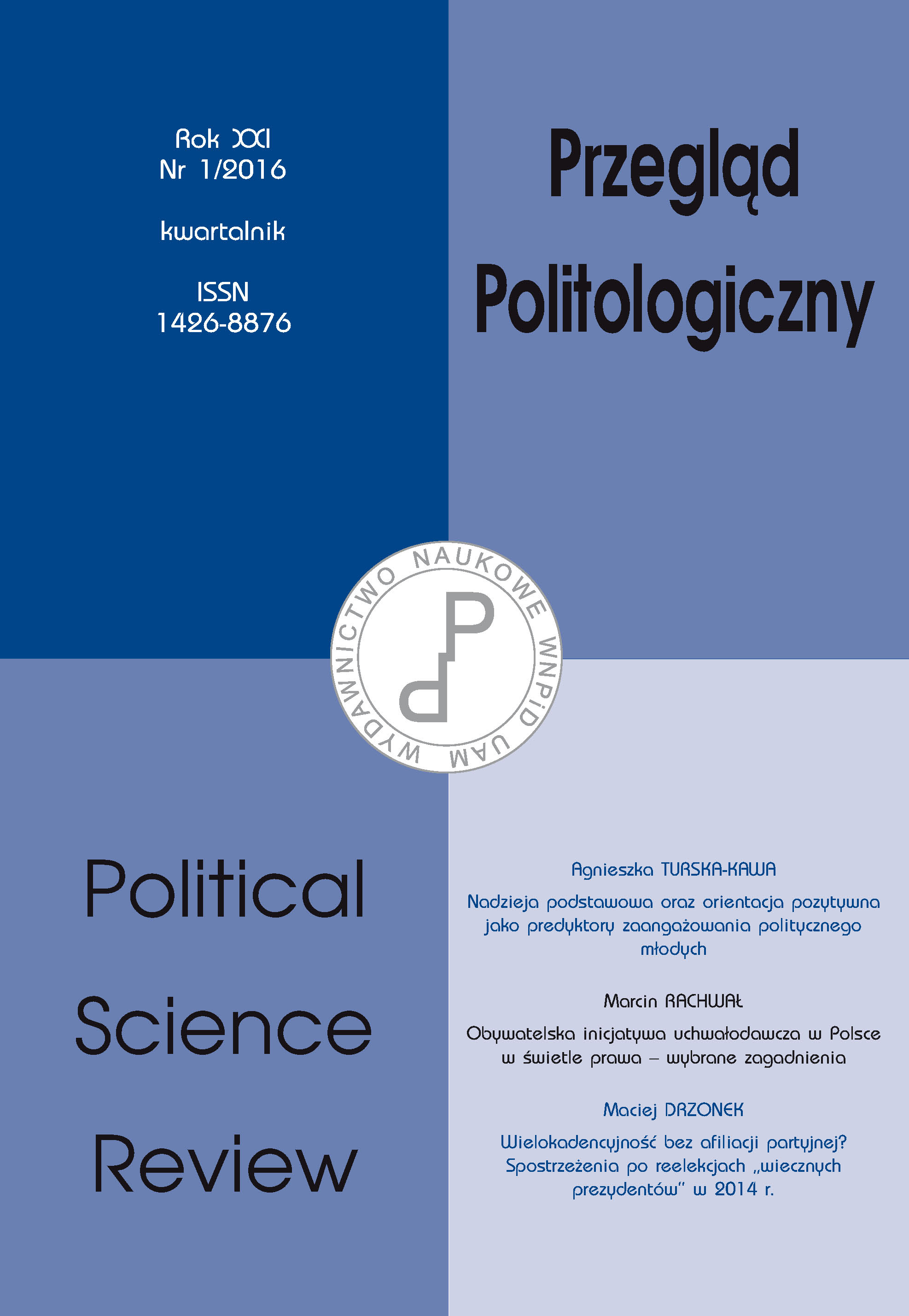Wielokadencyjność bez afiliacji partyjnej? Spostrzeżenia po reelekcjach „wiecznych prezydentów” w 2014r
Multiple terms in of ce without political party af liation? Remarks following the Re-election of ‘everlasting mayors’ in 2014
Author(s): Maciej DrzonekSubject(s): Politics / Political Sciences, Politics, Social Sciences, Governance, Public Administration, Sociology, Rural and urban sociology
Published by: Uniwersytet Adama Mickiewicza
Keywords: local politics; mayor of town elections; multi-term mayors; local power
Summary/Abstract: Since 2002, town mayors in Poland have been elected in direct elections every four years. In thirty towns with county rights the same persons were elected in the years 2002–2010. They are named ‘everlasting mayors’ (multi-term mayors, incumbents). In the 2014 local elections three of them resigned from the campaign for re-election, ten ‘everlasting mayors’ lost the elections and seventeen of them won the elections once again. Their successes provide the starting point for determining the position of political parties and nonpartisan committees on local political scenes. The assumption is made that the political position of parties is powerful if the ‘everlasting mayor’ is effective in trying to gain re-election while formally representing this party on the local political scene. And conversely – parties have a weaker political position on the local political scene when the incumbent prefers to lead a nonpartisan election committee in the rivalry for re-election (an electoral committee of voters, or an electoral com- mittee of a nongovernmental local organization). The nal conclusion of the analysis is the following: in the 2014 local elections in Poland most of the ‘multi-term mayors’ were re-elected as representatives of nonpartisan committees. Only in two cities (Gdańsk, Świnoujście) were mayors’ seats won by party political incumbents.
Journal: Przegląd Politologiczny
- Issue Year: 2016
- Issue No: 1
- Page Range: 81-89
- Page Count: 9
- Language: Polish

